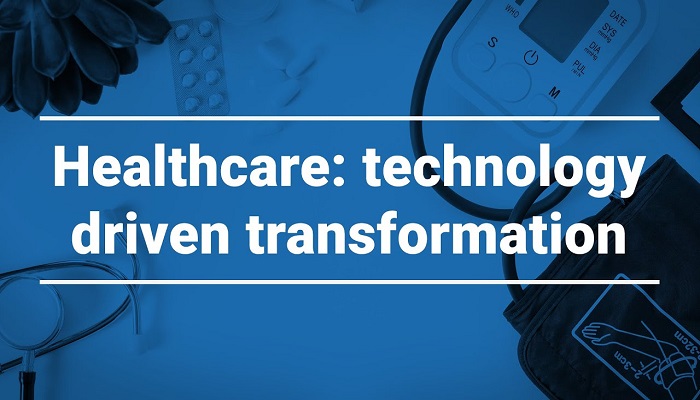Groundbreaking healthcare technology has the potential to revolutionize medical procedures and treatments. Below are the Four highlighted latest technological trends in healthcare and their profound impact on the field.
Below are the four highlighted
- The Era of Data Transformation
In this era of technological advancement, access to information has reached unprecedented levels. The internet, modern data systems, and highly intelligent search features have accelerated the sharing of information within the healthcare community. A central focus of this transformation is the utilization of Big Data in healthcare, enabling extensive research on an enormous scale.
Imagine delving into vast and diverse groups of individuals, harnessing data from past studies to gain comprehensive insights. This technological wizardry empowers healthcare professionals to stay attuned to health trends and treatment modalities. It’s akin to possessing a crystal ball that identifies risks and recommends optimal care, all while managing costs and enhancing lives.
- Enhanced Communication and Information Flow
Technology has come to the rescue with the advent of electronic medical records, simplifying the sharing of information without compromising patient privacy. Real-time meetings and collaboration among healthcare practitioners have become seamless. Doctors can effortlessly communicate, share insights, and brainstorm about patient health.
The most remarkable aspect of electronic medical records is their accessibility to all those who require the data. This translates into improved case management, more effective treatments, and swifter patient recoveries.
- Elevating the Patient Experience
Technology, as we know, is designed to make life easier, and it is doing precisely that for healthcare. Tools like NDIS Software empower healthcare providers to craft personalized care plans, streamline billing processes, and optimize scheduling. Electronic Health Records (EHRs) allow doctors to assess their patients’ medical histories swiftly, resulting in more informed decisions and safer care practices.
Certain applications even assist doctors in identifying potential errors and ensuring patient safety. All of these advancements contribute to heightened customer satisfaction and an elevated standard of patient care.
- The Ascendancy of Artificial Intelligence (AI)
Artificial Intelligence (AI) is swiftly gaining prominence and making an impact across various industries, including healthcare. AI excels at recognizing patterns, offering invaluable insights to medical practitioners, and facilitating the development of customized treatment approaches. This translates to more informed decisions and substantial savings in time and resources.
Furthermore, AI’s role extends beyond diagnostics, although it is a significant component. It delves into patient health records, scans, and X-rays, identifying diseases at early stages, a task often challenging for the human eye.
But AI doesn’t stop there; it also aids in providing doctors with insights into patient trends, handling routine administrative tasks, monitoring vital signs, identifying risks, and offering personalized treatment plans and lifestyle recommendations. In essence, AI is not merely changing the healthcare landscape; it is rewriting the entire playbook.


















